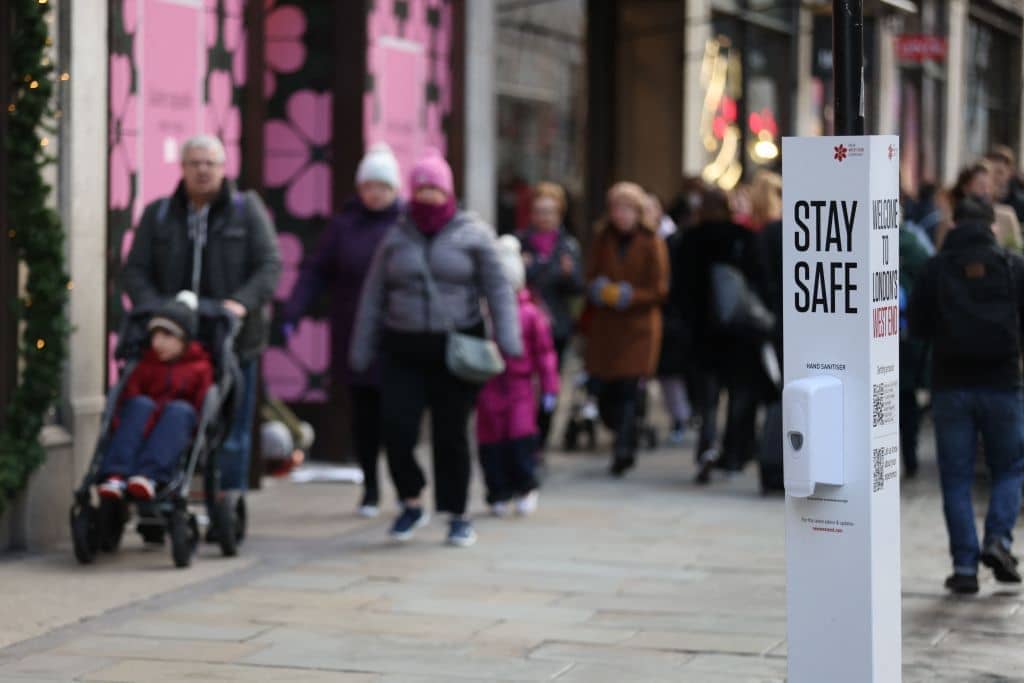Two weeks ago, the London School of Hygiene and Tropical Medicine (LSHTM) and Imperial College both published modelling showing frightening scenarios if the government did not react to the Omicron variant by imposing immediate restrictions on our day to day lives. The former suggested that hospitalisations could peak at 7,190 a day in January in its most pessimistic scenario; the latter was reported as suggesting that deaths might peak at 5,000 a day in January. Both figures, however, were made on the assumption that Omicron was every bit as virulent as the Delta variant. Since then, several UK studies have suggested that this is not the case, with data showing it is between 20 per cent and two thirds less likely to land us in hospital. A South African study puts it higher, at 80 per cent less risk.
Today, however, another of Sage’s modelling teams has modelled a scenario which does assume that Omicron is less severe than Delta. Warwick University has worked around a central assumption of a decline in severity of 50 per cent. The numbers of projected hospitalisations and deaths, however, do not come out hugely more favourably. In fact, the Warwick team is forecasting an even higher peak of hospitalisations. If no further restrictions are placed on the public, Warwick predicts hospitalisations peaking at 13,600 a day and deaths at 2,890. The latter figure would be twice as high as that observed in January 2021, the deadliest peak of the whole pandemic in Britain.
If no further restrictions are placed on the public, Warwick predicts hospitalisations peaking at 13,600 a day and deaths at 2,890
Warwick also modelled what it thinks would have happened had a ‘short, stringent circuit-breaker’ been imposed between 19 December and 15 January or had it been imposed later on 26 December. In the former case, its model suggests, hospitalisations would have been kept below 2,000 a day but would have spiked to 12,000 in a subsequent peak in February/March. Deaths in that second peak are shown peaking at around 2,600. In the latter case, hospitalisations would have peaked at 6,000 a day in January and then 7,000 in a subsequent peak in February/March. Deaths would have peaked at 1,100 in January and 1,600 in March. In the ‘do nothing’ scenario, on the other hand, there would be no second peak.
Will the Warwick modelling provoke the government into placing us in lockdown in the New Year? The Warwick team have modelled one further scenario: in which a short circuit-breaker lockdown is imposed on 3 January. In that scenario, it suggests, things would turn out almost exactly the same as in the ‘do nothing’ scenario. In other words, Warwick’s model is telling us that it is too late now to temper the Omicron wave – the hospitalisations and deaths are already baked-in.
Needless to say, this is just modelling and it has not been peer-reviewed. It looks from the graphs as if the predictions may already have been overhauled by events, with the graph of infections appearing to show daily levels well above 2,000 by the end of December; the figure for 31 December was 189,000, a figure which may have been inflated by delayed reporting over the Christmas weekend. Critics will point to previous pieces of Sage modelling which have proved wide of the mark. Some of the scariest scenarios presented in past modelling, however, cannot be tested against reality because the government did introduce lockdown restrictions and so changed the course of the pandemic, for better or worse. This time around, given that the government has not introduced restrictions beyond Plan B, the models really will be able to be tested against reality – with consequences, perhaps, for either the government or the modellers.







Comments